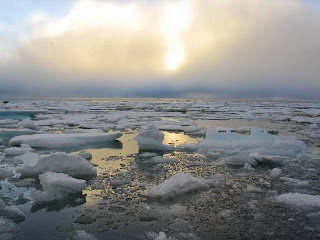Between March 2005 and May 2006, three representatives of Chesapeake Climate Action Network were apparently being spied on due to their non-violent efforts to raise awareness about climate change.
All three received letters from the Maryland State Police this October blandly stating that there was “no evidence whatsoever of any involvement in violent crime” and they had the option to view the files once, without a camera or lawyer present, before the surveillance records were destroyed.
Obviously, the three young activists were none too pleased to learn that Big Brother was picking through their underwear drawer due to their opposition to Big Oil.
Mike Tidwell, the founder of the Chesapeake Climate Action Network said in his blog “since 2001, I have devoted my life entirely to the peaceful promotion of windmills and solar panels to solve global warming. Apparently not everyone liked my work, however.”
Josh Tulkin is another one of the “gang of three”, who has since moved on to work for another climate action organization.
He provided a video statement and said for the record, “I won’t be intimidated. Like so many young people, I understand that global warming will have severe impacts on my future, and we are working together to address this problem. I am proud of the action of my peers, and we should be supported, not suspected.”
Most disturbingly, this bizarre action against non-violent activists appears to be politically motivated. The letter provided to all three says they are being informed of the program only due to review and change of heart initiated at the governor’s office. Specifically the letter states:
On July 31, 2008, at the request of Governor Martin O'Malley, former Attorney General Stephen H Sachs agreed to conduct an independent review of an intelligence-gathering operation undertaken by the Maryland State Police from March 2005 to May 2006.
Mr. Sachs' report was released on October1, 2008. His report made several recommendations for action by the Maryland State Police, among which was to contact all individuals who are presently described in the MSP's Case Explorer database program as being “suspected of involvement in terrorism but as to whom MSP has no evidence whatsoever of any involvement in violent crime." Additionally, the report recommended that MSP provide these individuals the opportunity to review the relevant Case Explorer entries before purging these entries. I agreed to this recommendation.
You are one of the individuals whose name was placed in the Case Explorer system under this designation. Accordingly, I am writing to you to provide the opportunity for you to review the relevant entries before the Maryland State Police begins to purge these entries. Please contact the Maryland State Police, Homeland Security and Investigation Bureau to make arrangements to review the entries.
As the current Superintendent of the MSP, I am looking forward to purging these entries, putting into place policies and supervision that will prevent against this kind of operation in the future and moving beyond these issues to continue the necessary work of the Maryland State Police.The Maryland State police and Homeland Security might want to note the scientific community has warned that climate change is a “far greater threat to the world than international terrorism”. Just a thought.


 There’s big trouble at the top of the world according to a
There’s big trouble at the top of the world according to a 



